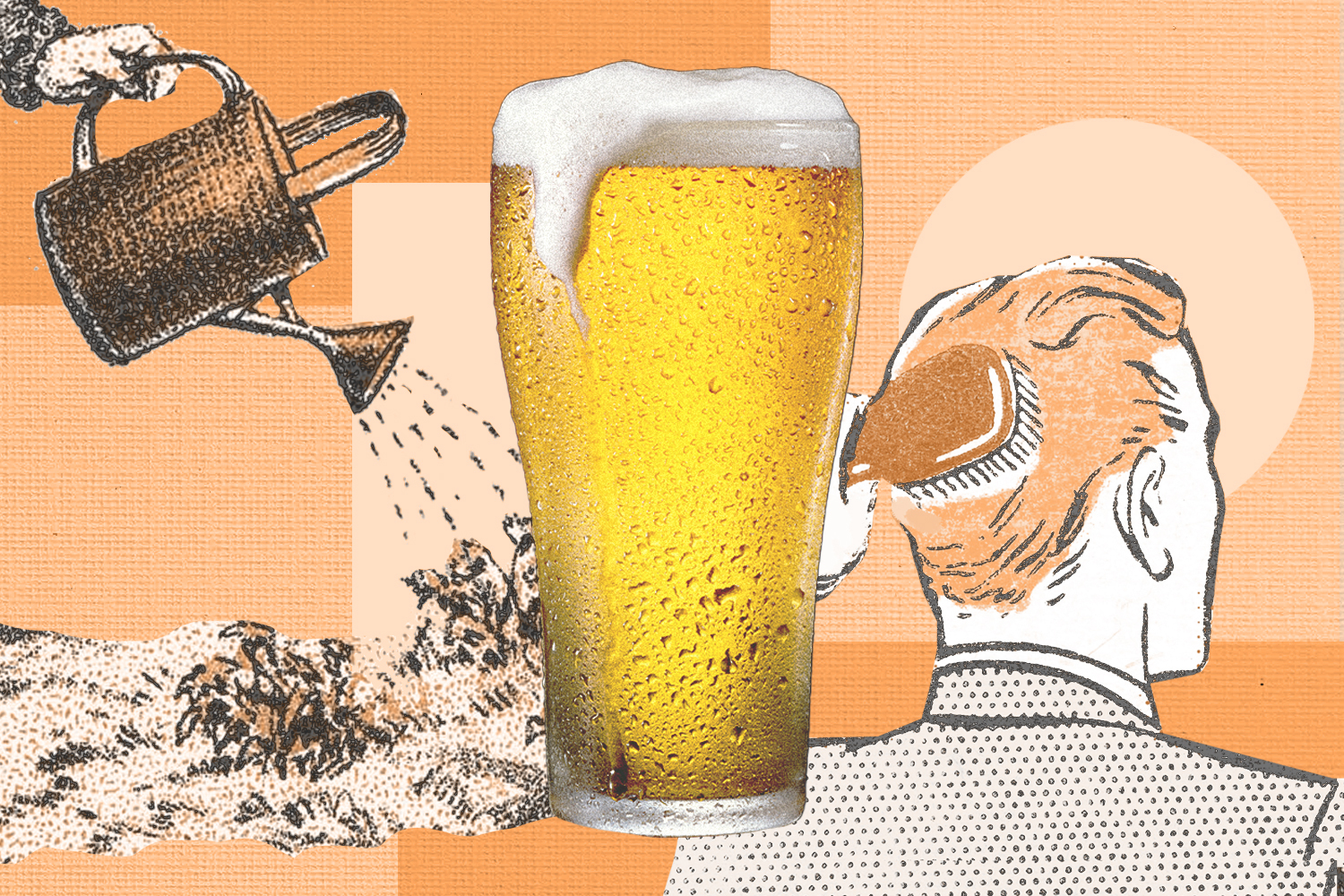In many circles, especially hard-drinking ones, dumping any beer is tantamount to alcohol abuse. Hard looks, furrowed brows and cutting comments are not uncommon responses from any witnesses, especially if beer ranks high among their chief passions.
But for those who grimace at the idea of choking down that final finger of warm, flat, saliva-soaked suds just to keep up appearances, the amazing chemistry of beer offers a handy get-out-of-dregs-free card, as well as a way to boost your beer cred. Saving that bit of beer instead of drinking can spread the wealth, as the amazing chemistry of beer can produce wonders that don’t even require a sip.
Skin, hair, gardens, lawns, wood and metal can all benefit from the magical combination of hops, grains, yeast and water, and the compounds inside — offering even further integration of beer in your life. Here are four ways to reap the benefits of beer outside your body.
Grow the garden
After humans, plants may be beer’s second greatest fans. That’s because beer provides a range of benefits to green things everywhere. First of all, it makes for good pest control in the garden, especially if it’s slugs and snails gnawing holes in your kale, tomatoes and hostas. A well-placed open beer — usually buried to the lip — attracts all manner of insects with its yeasty, sugary, fermented aroma, luring them one by one into taking a dip they can’t get out of. They are likely to be joined by earwigs, moths, fruit flies and cockroaches.
The dead spots on the lawn may also appreciate a drink or two, as grass loves the sugar and nutrients inside. Individual plants can benefit, too, as a 2:1 mix of beer and water can make an effective fungicide. Adding beer, especially a yeasty ale, to compost can help speed its production, too, as the yeast helps break down the carbon-based materials in the compost pile and accelerates decomposition of organic ones. The sugars become food for beneficial microbes.
Soften skin and shine hair
Beers spas may be part gimmick, but they also come with some good science. Topical applications of beer bring a range of benefits to the skin. The malt in beer helps exfoliate skin, stabilize collagen and elastin and improve circulation, while the vitamin-B rich yeast and barley moisturizes. Hops help, too, thanks to their antibacterial, antioxidant, anti-inflammatory properties that deeply clean the skin. These include the powerful antioxidant xanthohumul and humulone, an antibacterial. Beer mixed with white vinegar also works well on your feet by cleaning dead cells.
Your hair may also benefit from a beery soak, too, as malt and hops contain a protein that can strengthen hair cuticles. The binding that results makes hair smoother, and therefore shinier, as it better reflects light. In other words, it acts like a conditioner rather than a cleanser, and should follow the basic five-minute rule for the keeping it in. Low or no alcohol beer may work better, too, as alcohol can have a drying effect. To prep, leave the beer out overnight, as it should be flat and warm for the session.
Beer’s Least Sexy Ingredient May Be Its Most Important
Everything you need to know about how yeast impacts beer’s flavorRemove stains
While spilling beer can stain your clothes, it can achieve the opposite elsewhere. In rugs, beer does a great job removing coffee, tea and other stains. That’s because beer is acidic and, together with the carbonation, breaks down organic material, especially the tannins in tea and coffee. Because it’s liquid, it also penetrates the fabric better than powder. Just blot the stain with a light lager or pale ale until saturated and then leave for a few minutes. Once the stain is removed, finish with soap and water to remove any beer residue.
Refresh wood and metal
Spilling a full beer on a table is never a good thing for wood, but dabbing stale beer on a soft, nonabrasive cloth and wiping down the same table can restore a bit of luster and color. The same goes for brass and copper items, such as lamps, pots and pans, doorknobs and grillwork. Gold also responds well. Again, the acidity is the secret weapon, dissolving the compounds on the surface that cause the tarnish. With light rust, beer can help, too, as the carbonation breaks it down enough to freely turn that screw again. With rusted hardware tools, you can soak them in beer for 24 hours.
Join America's Fastest Growing Spirits Newsletter THE SPILL. Unlock all the reviews, recipes and revelry — and get 15% off award-winning La Tierra de Acre Mezcal.
